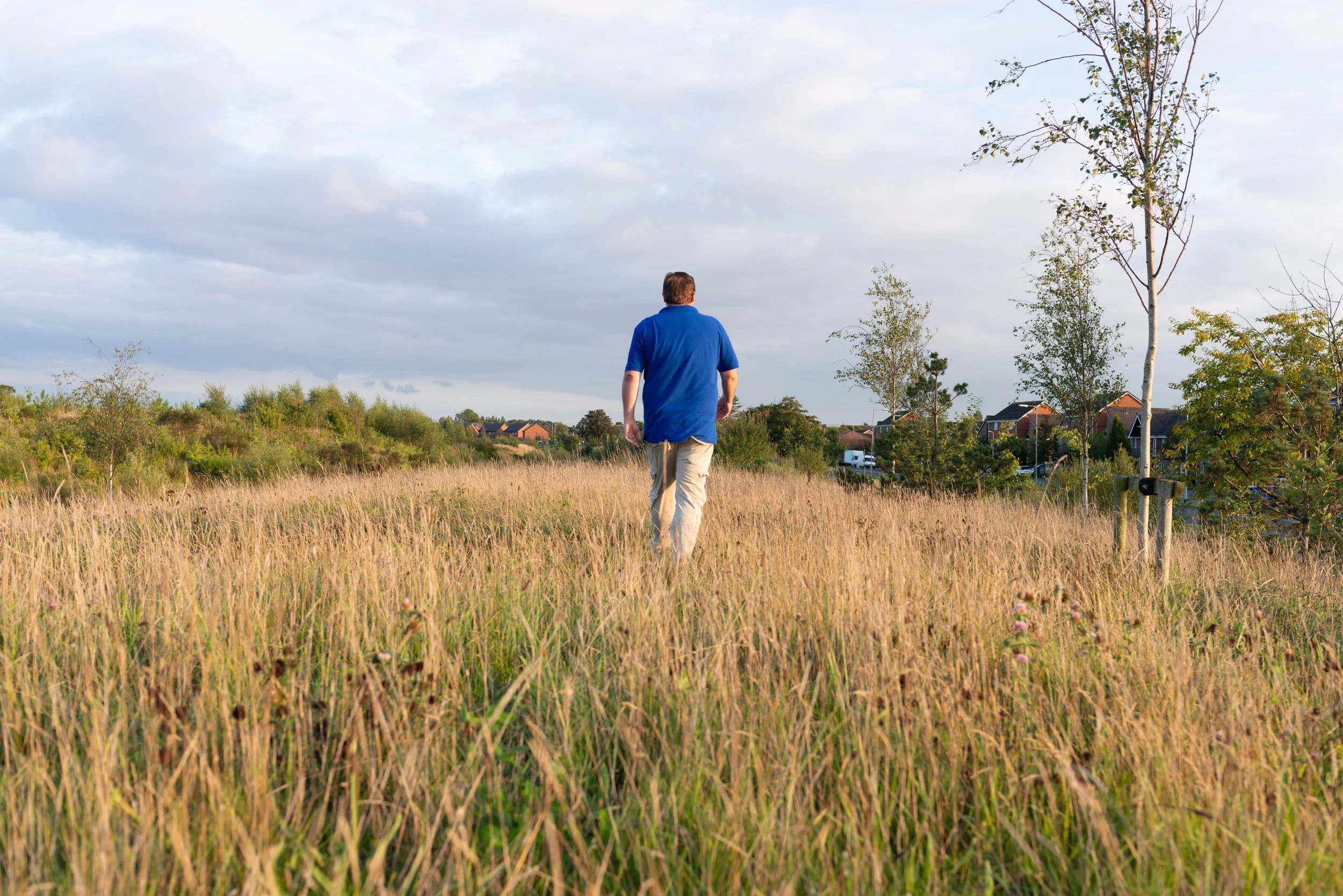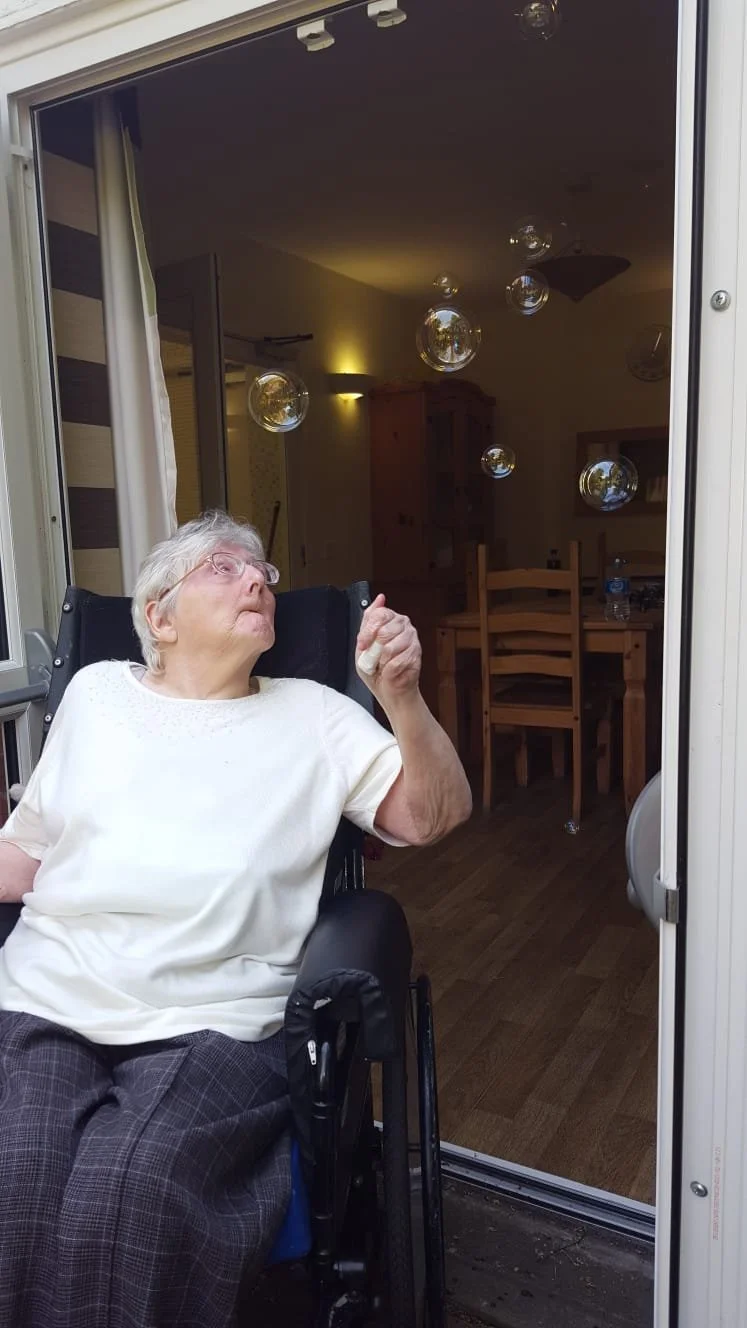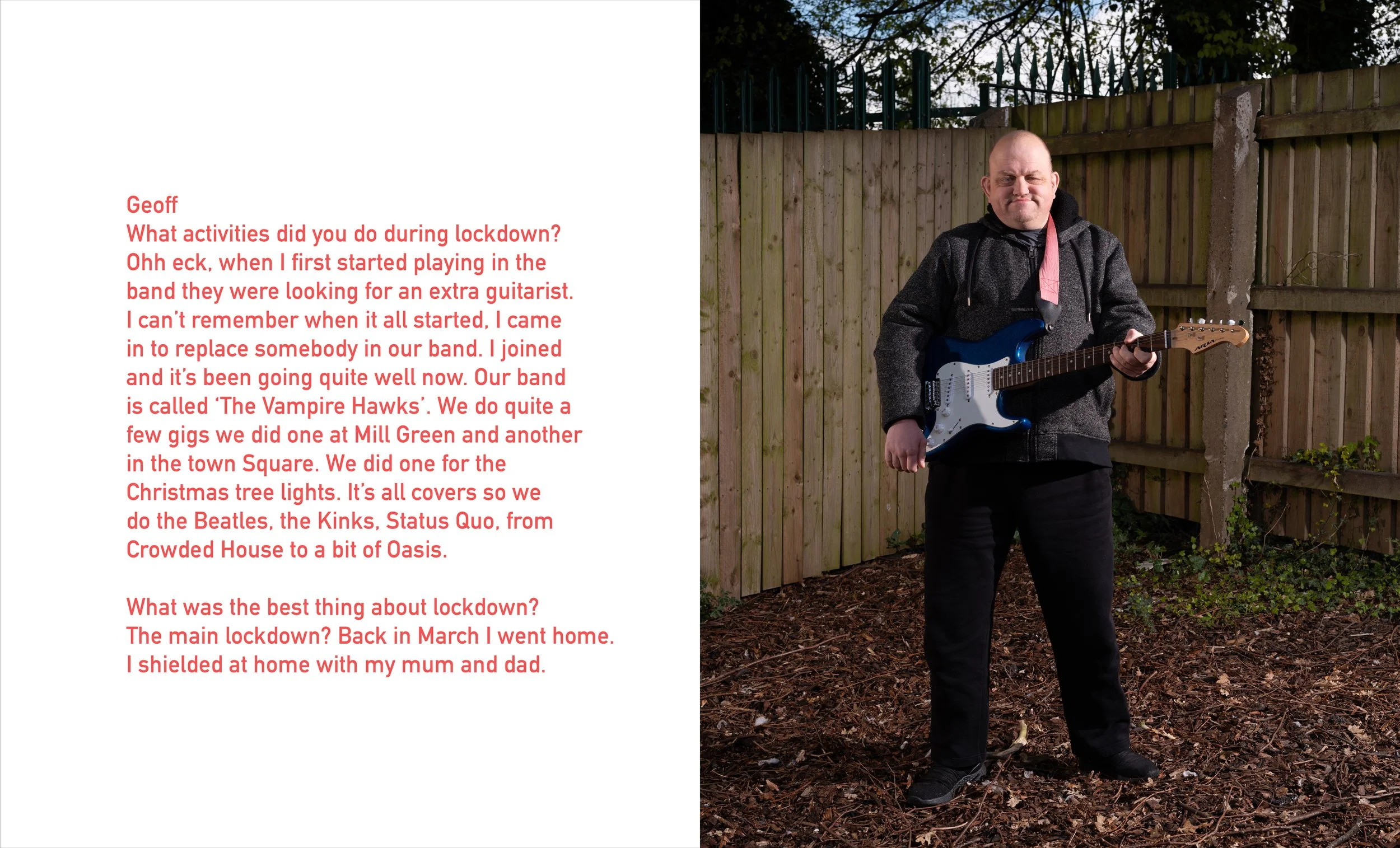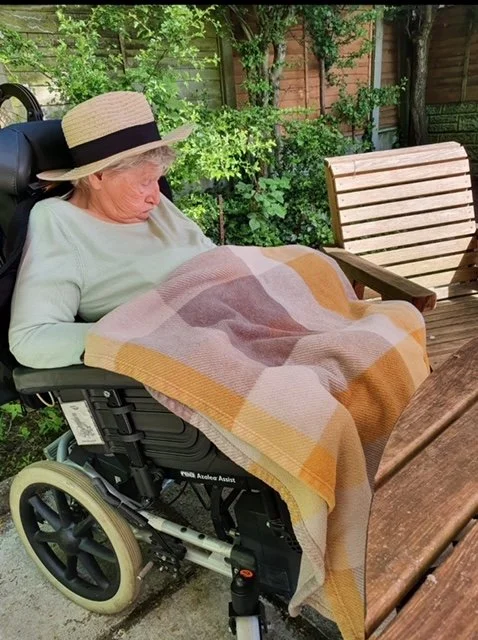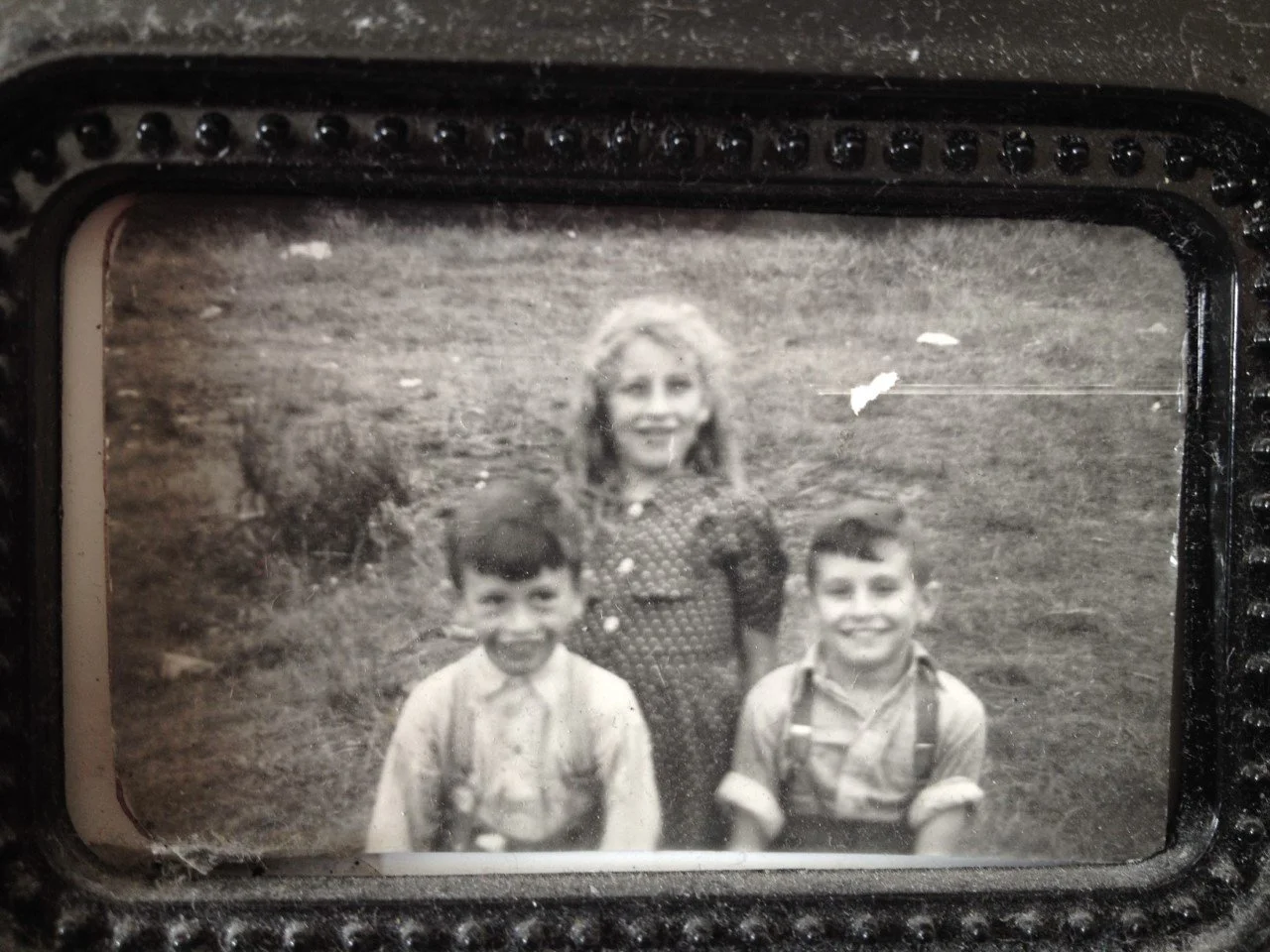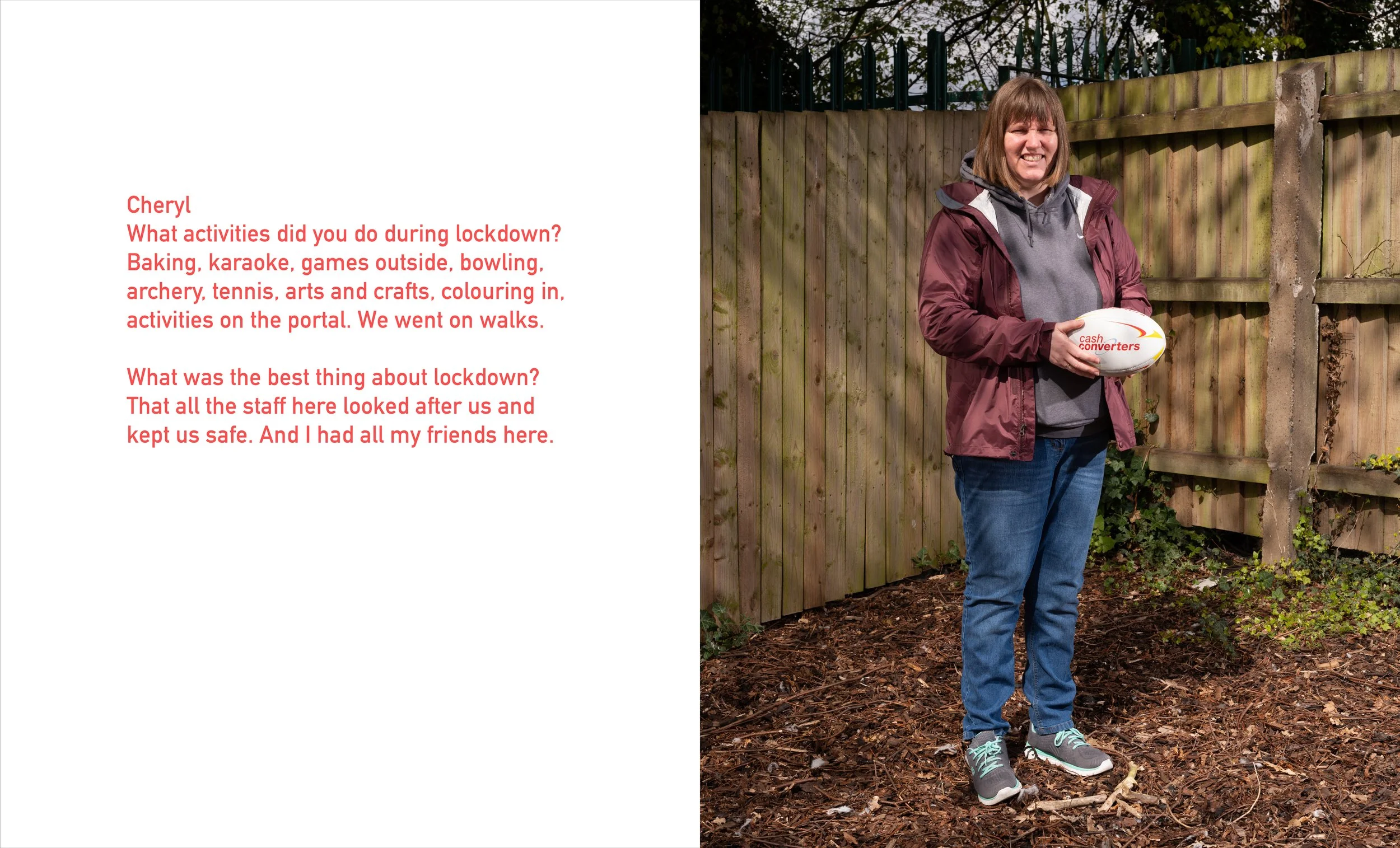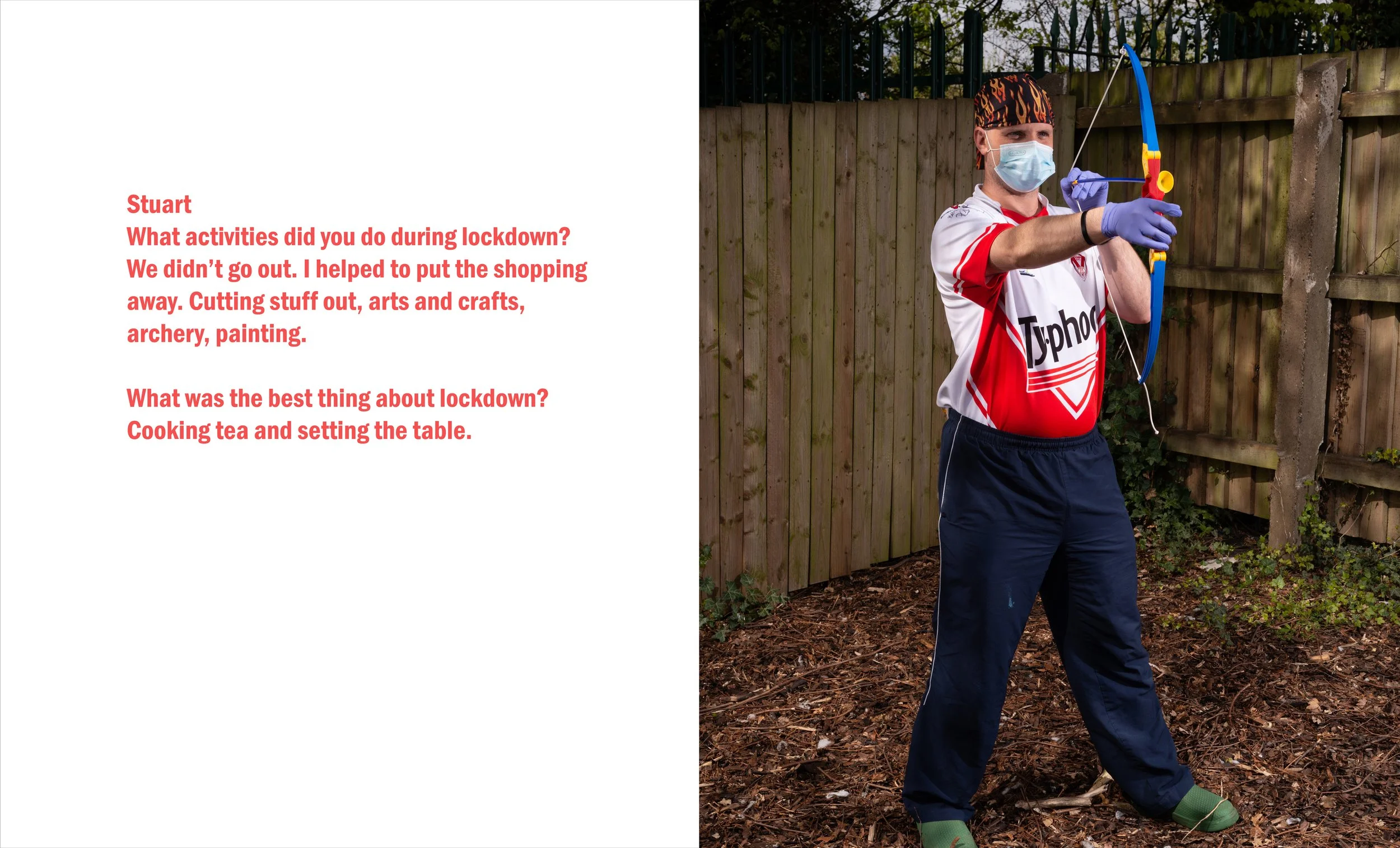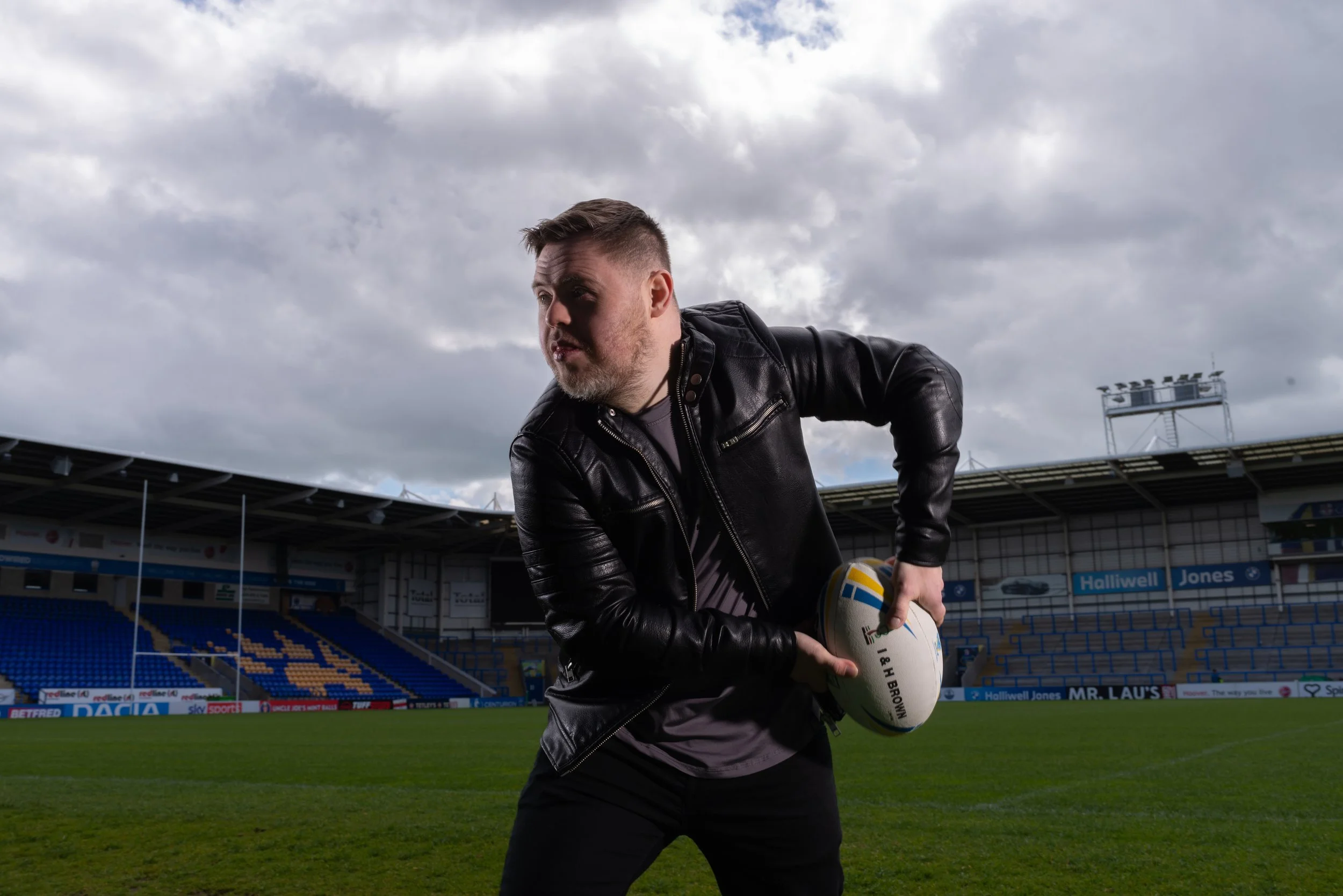BOUND/FRAYED
Bound/Frayed reflects a year-long project between myself and a number of staff and people supported by the social care charity, Community Integrated Care. Together we were co-authoring images which represent the experience of working in the care sector in some of the most challenging moments, whilst also celebrating the everyday work to support people who access social care, which is often hidden from the public. These portraits capture an important moment of resilience in our society, made during equally challenging times.
The work started with Zoom calls during lockdown, which led to many of the images being created outdoors whilst many of the restrictions were still in place. The portraits reflect some of the most difficult moments for those working within the industry during the pandemic. They simultaneously shine a light on the resilience and dedication to personal care throughout this time.
Neil Heywood spent three months living in a motorhome in order to protect the residents that he cared for and also to keep his young family safe as he didn't want to put either at risk at the outbreak of the pandemic in March 2020.
"It was a really hot dry summer, God's whims way of making the weather during lockdown the best we've had. But there was one night when it rained and it was coming in through the roof. It was dripping right onto the bed where I was. It was in the middle of the night and I had nothing but masking tape and a sock to try and plug the hole. It was terrible really."
“I suppose the motor home is like a functional part of the story but it’s not the emotional experience of that time. My family were part of the lockdown so on my days off here I was doing my shopping for them and going home and I’ve got two young kids and there was an image that was caught by my partner from the inside of the house and I was outside and you can see I’ve got my work gear on and a face mask on and I’m looking at my daughter through the window. It was an accidental image really but when I reflected on it and when it was sent to me via WhatsApp it was the enduring image really. The window seemed to represent that as if I was in a bubble, if you know what I mean. I was shielded away from my life really, rather than anything else.”
“Over a two week period five of the staff tested positive and four of the residents tested positive so this meant there were only three members of staff able to provide 24 hour care in that time. One member of staff called Toni would do the night shifts and try to sleep during the day on an air bed in the office.”
Above: Francis Shacklady spoke about how some members of the public would stare as he did the shopping in full PPE for the residents of the care home where he worked and would complain about the number of items he was buying as they didn't believe he was buying for numerous individuals rather than just himself. "Everything we do outside of work, we do with work in mind. So if we need to do the shop, we are in full PPE and people are looking at us funny. But we are making sure that we are not bringing anything into that service to make these vulnerable adults that we really care for and make them poorly."
An Ecology of Care was exhibited at Open Eye Gallery, Liverpool in September 2023
Oliver Thomason was recruited by Community Integrated Care during the pandemic and has taken on the role of Sports Inclusion Assistant. His role is to mentor and encourage others to engage in activity programmes. He was also named as the Inclusion Ambassador at the Rugby League World Cup in 2021, as his brother Craig states "Oliver is a very inspirational young man, It's something that has driven him for a while as he has always wanted a job. He has always wanted a relationship, he loves playing sport, he likes going to the pub with his mates. Things like that, that we take a little bit for granted."
“Many times I was walking along roads with not a soul, not anyone in sight. So a lot of that sort of solitude and a lot of reflection on what was going on. But at the same time I was quite isolated in a bubble myself. I think that was kind of the emotional aspect of the lockdown and that was my enduring feeling about it really. I know it sounds daft this but when you were making these walks it’s quite a long way from where I live, from Huyton it’s a two and a half hour walk. I’d really appreciate that walk at times but I’d only ever hear two sounds. One would be birdsong and the other one would be sirens. And I heard those two sounds constantly. It was like a soundtrack to a walk and I was really profoundly affected by that, the two sounds together. That’s all you’d hear, you wouldn’t hear cars going past. You wouldn’t hear anything, the roads would be empty but I could always hear a siren.”
An Ecology of Care brings together a series of socially engaged projects reflecting the intimate stories of care, relationships and resilience within our community. ‘Care’ and ‘community’ have become buzzwords in recent years, but the projects included in this exhibition attempt to highlight the genuine power of collective discussion and action from those with lived experiences in relation to health and social care.
Photographer Tadhg Devlin presents two collaborative projects Bound/Frayed and Across the Kitchen Table (Who is the Community?).
Bound/Frayed reflects a year-long project between Tadhg Devlin and a number of staff and people supported by the social care charity, Community Integrated Care. Together they have been co-authoring images which represent the experience of working in the care sector in some of the most challenging moments, whilst also celebrating the everyday work to support people who access social care, which is often hidden from the public. These powerful portraits capture an important moment of resilience in our society, made during equally challenging times.
Tadhg Devlin has also been working in collaboration with people living with dementia in Liverpool and Mersey Care NHS Foundation Trust, to develop Across the Kitchen Table (Who is the Community?). Within society there is often a negative assumption that dementia is only associated with loss. The conversations and images captured in this work challenge this belief and demonstrate the importance of maintaining existing relationships, and developing new ones, following a diagnosis of dementia.
The participants in this work spoke passionately about the importance of meeting others in the same position as themselves, their peers, and the transformational impact this could have on quality of life. They highlighted the many benefits of coming together to offer insight, share experiences, perspectives and the difficulties of some of the issues around dementia. Without these experiences, often in groups, many of these individuals would be isolated in their experience of living with the disease. Throughout the country, support offered post diagnosis varies greatly with many areas offering very little support whatsoever.
By discussing the positives of coming together and forming strong supportive relationships the group hopes to raise awareness and to initiate conversations in other parts of the country to form similar groups, make connections and to offer support for those who can often be overlooked. An activity booklet has also been co-produced with designer Amrit Randhawa, that is hoped will help others in the future and to show the power of bringing people together.
https://openeye.org.uk/whatson/vr-an-ecology-of-care
“One of our ladies who lived here passed away during it all and that was very hard. And hard to make the residents understand and also to get your own head around. That there was actually a death in your service. She did have underlying health issues which obviously didn't help, but to lose someone that you supported for 11 years was very, very hard. I had worked with her for 11 years but she had lived in this house since 2003 and all the ladies obviously knew her really well. It's not just a house as we are really close and trying to support the other ladies when there's been a death was really difficult.”
In a report dated 15th July 2021, it stated that people with learning disabilities in England were eight times more likely to die from Covid than the general population, according to research that highlights a "hidden calamity" of the coronavirus crisis. Among Covid patients with Down's syndrome, for example, the risk of dying from the infection was 36 times higher than in the general population.




